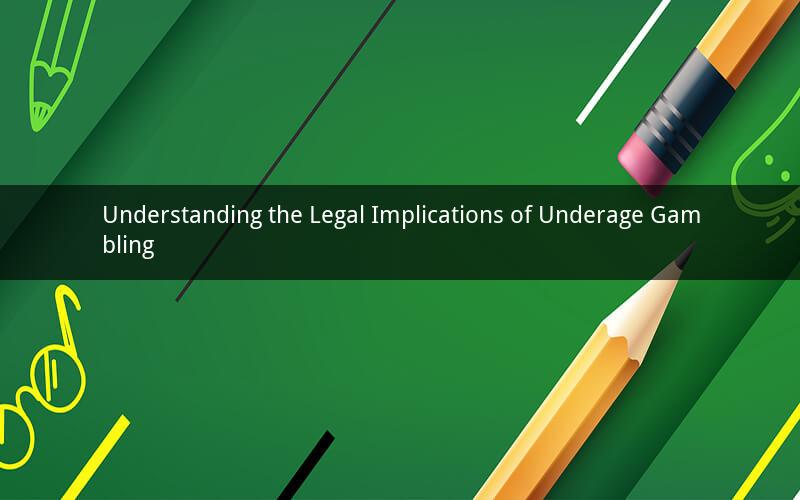
Underage gambling is a significant concern that affects both individuals and society as a whole. This article delves into the legal implications of underage gambling, exploring the potential consequences for those who engage in this activity. By understanding the risks involved, individuals can make informed decisions and take necessary precautions to avoid legal trouble.
1. Is it illegal to gamble underage?
Yes, it is illegal to gamble underage in most jurisdictions. Many countries and states have specific laws that prohibit individuals under the legal gambling age from participating in any form of gambling activity. These laws are in place to protect young people from the potential harm associated with gambling, including financial, psychological, and social consequences.
2. What are the consequences of underage gambling?
The consequences of underage gambling can be severe, both legally and personally. Here are some of the potential repercussions:
a. Legal penalties: Underage gamblers may face fines, community service, or even imprisonment, depending on the severity of the offense and the jurisdiction.
b. Criminal record: A conviction for underage gambling can result in a criminal record, which can have long-term implications for employment, education, and other aspects of life.
c. Financial loss: Underage gamblers may experience significant financial losses, which can lead to debt and other financial problems.
d. Psychological issues: Problem gambling can lead to a range of psychological issues, such as depression, anxiety, and addiction.
e. Social consequences: Underage gamblers may face social repercussions, including ostracism and damage to relationships with family and friends.
3. Can parents be held liable for their children's underage gambling?
In some cases, parents or guardians may be held liable for their children's underage gambling activities. This can occur if the parents knew or should have known about their child's gambling and failed to take appropriate action to prevent it. The extent of liability will depend on the specific laws and circumstances of the case.
4. How can underage gambling be prevented?
Preventing underage gambling involves a combination of legal measures, education, and parental supervision. Here are some strategies:
a. Enforce strict gambling laws: Governments should enforce existing gambling laws and consider implementing stricter regulations to deter underage gambling.
b. Educate young people: Schools and communities should provide education on the risks of gambling to help young people make informed decisions.
c. Monitor online gambling platforms: Online gambling sites should implement age verification measures to prevent underage gambling.
d. Encourage open communication: Parents and guardians should maintain open lines of communication with their children to discuss the risks of gambling and monitor their activities.
5. What should individuals do if they suspect underage gambling?
If you suspect that someone is engaging in underage gambling, it's important to take action. Here are some steps to consider:
a. Talk to the individual: Express your concerns and discuss the potential consequences of underage gambling.
b. Report the activity: If you believe that the gambling is illegal or harmful, report the activity to the appropriate authorities or organizations.
c. Seek support: If you're concerned about your own gambling habits or those of a loved one, seek support from a professional or support group.
In conclusion, underage gambling is a serious issue with significant legal and personal consequences. By understanding the risks and taking proactive measures to prevent it, individuals can help ensure a safer and healthier future for themselves and others.